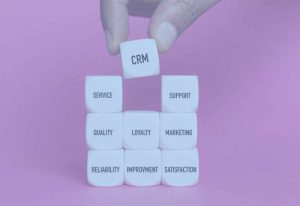
A CRM system is an essential tool for any organization, including non-governmental organizations (NGOs). The purpose of a CRM system is to help organizations manage their interactions with customers, partners, and other stakeholders. In the case of NGOs, this includes managing donor relationships, volunteer engagement, and stakeholder communications.
A well-designed CRM system can provide a number of benefits to NGOs. Here are some of the key advantages:
- Improved donor management: A CRM system allows NGOs to manage their relationships with donors more effectively. This includes tracking donations, managing donor communication, and identifying opportunities to engage donors more effectively.
- Volunteer management: Volunteers are an essential part of many NGOs, and a CRM system can help manage their engagement. This includes tracking volunteer hours, managing volunteer communication, and identifying opportunities to engage volunteers more effectively.
- Stakeholder communications: NGOs need to communicate with a range of stakeholders, including donors, volunteers, beneficiaries, and partners. A CRM system can help manage these communications by providing tools for email marketing, social media management, and other communication channels.
- Data analysis: A well-designed CRM system can provide valuable insights into an NGO’s operations. This includes tracking key performance indicators (KPIs) such as donor retention rates, volunteer engagement rates, and other metrics that help NGOs understand their impact.
- Improved efficiency: By automating many of the tasks involved in managing donor relationships, volunteer engagement, and stakeholder communications, a CRM system can help NGOs operate more efficiently. This allows organizations to focus on their core mission and make the most of their resources.
When selecting a CRM system for an NGO, there are a number of factors to consider. These include:
- Ease of use: The CRM system should be easy to use and understand, even for users who may not have extensive technical expertise.
- Integration with existing systems: The CRM system should be able to integrate with other systems used by the NGO, such as accounting software or project management tools.
- Customizability: The CRM system should be customizable to meet the specific needs of the NGO. This may include custom fields, workflows, and reports.
- Security: The CRM system should have robust security features to protect sensitive donor information and other data.
- Cost: The cost of the CRM system should be within the NGO’s budget, taking into account any ongoing maintenance and support costs.
In conclusion, a CRM system is a valuable tool for NGOs, providing a range of benefits including improved donor management, volunteer engagement, stakeholder communications, and data analysis. When selecting a CRM system, NGOs should consider factors such as ease of use, integration with existing systems, customizability, security, and cost. By choosing the right CRM system, NGOs can improve their operations and focus on their core mission of making a positive impact in the world.
Check out our CRM system that will help you improve your marketing.
Follow our Facebook for more information.




